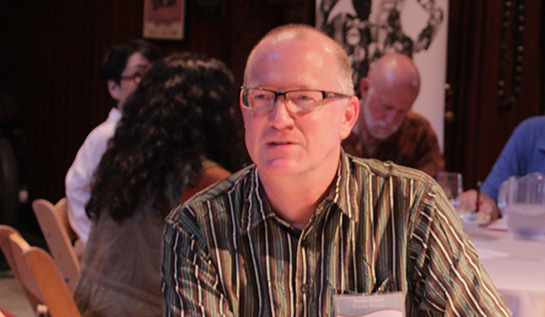Longman Provides Insight on Paul Rusesabagina’s Arrest

Timothy Longman, Professor of International Relations and Political Science at the Frederick S. Pardee School of Global Studies at Boston University and Director of the Institute on Culture, Religion and World Affairs, was interviewed for an article in The Conversation discussing the arrest of Paul Rusesabagina, chairman of the Rwandan Movement for Democratic Change (MRCD) political party.
In the early 1990s, supporters of Rwanda’s president Juvenal Habyarimana went about killing opposition politicians, civil society activists, and members of the Tutsi ethnic minority in Kigali following the president’s death on April 6, 1994. Rusesabagina, manager of the Hôtel des Mille Collines, saved hundreds of Rwandans during the genocide by sheltering them in the hotel. He was recently arrested following accusations that he has supported an armed wing of the MRCD and RUD-Uranana, an armed group that launched a deadly attack on Rwanda in 2018.
In the article, Longman explains the details of Rusesabagina’s arrest, why many observers find it suspicious, and the historic pattern of major political challengers being arrested in Rwanda. Longman lamented the assault on Rusesabagina’s character and how someone who took heroic actions to protect the lives of others became more radical because of this.
An excerpt:
Many observers of Rwandan politics are suspicious of the charges against Rusesabagina, because the RPF regime has a record of using prosecution to intimidate opponents.
As I’ve written in my book, “Memory and Justice in Post-Genocide Rwanda,” the major challengers to President Kagame in each presidential election have been arrested and tried on trumped up charges. Former President Pasteur Bizimungu in 2002 and opposition party leader Victoire Ingabire in 2010 were tried on the vaguely defined crime of “divisionism” and imprisoned. Both later had their sentences commuted by President Kagame.
The full article can be read here.
Professor Timothy Longman is a Professor of International Relations and Political Science at the Pardee School, Director of the Institute on Culture, Religion and World Affairs, and acting Director of the African Studies Center at Boston University. His current research focuses on state -society relations in Africa, looking particularly at human rights, transitional justice, democratization, civil society, the politics of race and ethnicity, religion and politics, and women and politics. He has published two books based on his research in Rwanda: Christianity and Genocide in Rwanda (Cambridge University Press 2011), and Memory and Justice in Post-Genocide Rwanda (Cambridge University Press 2017). Read more about him here.